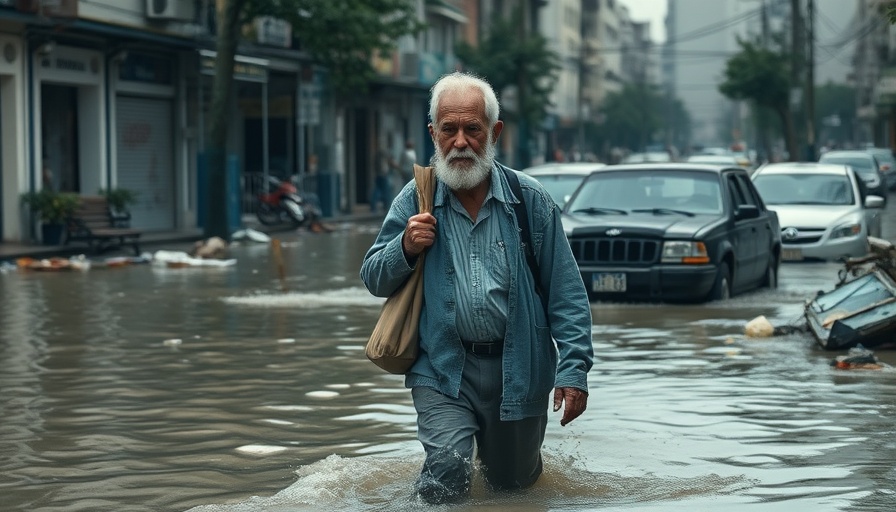
Escalation of Conflict Near the Black Sea
Recent strikes between Ukraine and Russia have escalated tensions in the region surrounding the Black Sea. Reports indicate that a missile strike in the city of Mykolaiv, Ukraine, led to significant destruction of homes and civilian infrastructure, injuring at least three civilians. These developments come on the heels of Russia's ongoing military campaign, which continues to target urban centers, creating dire humanitarian situations in previously peaceful regions.
Impact of Drone Attacks on Civilian Areas
On the same day, a significant oil depot fire broke out near Sochi, a popular resort destination for Russians. This incident was attributed to a Ukrainian drone attack, highlighting the tactical shift in Ukraine's military operations as they extend beyond bordered confrontations into Russian territories. The devastation from the drone strike has not only affected strategic resources but has also resulted in the temporary suspension of flights at Sochi's airport, greatly impacting the local economy and civilian travel.
International Response and Sanctions
In response to the attacks, Ukrainian President Volodymyr Zelensky has amplified calls for stronger international sanctions against Russia. Following a recent deadly attack on Kyiv that killed over 30 civilians, he emphasized the urgency of global support to pressure Russia into compliance with international norms. Such sanctions are designed to cut off resources that bolster military actions, aiming to disrupt the supply chains that fuel the ongoing conflict.
Increasing Military Engagement from Ukraine
Ukraine's military actions have become more pronounced, with reports indicating they launched more than 300 drones and eight cruise missiles targeting crucial installations across various Russian cities, such as Ryazan, Penza, and Voronezh. The strategic targeting of these areas underscores a more aggressive approach by Ukraine, which aims to demonstrate its capability and deter future aggressions. As indicated by the local authorities, the drone strikes have already resulted in injuries among civilians in these regions, raising concerns over the inevitable repercussions of a prolonged conflict.
The Human Cost of War
The recent strikes reflect the profound impact of the ongoing war on everyday Ukrainian citizens, who are bearing the brunt of the violence. The destruction of homes not only displaces families but also creates long-term psychological effects that can resonate for generations. As civilians navigate the dangers of daily life amid warfare, the need for humanitarian support and international solidarity becomes more pressing.
Future of Ukraine-Russia Relations
As the conflict shows no signs of abatement, the future of Ukraine-Russia relations remains uncertain. The potential for further military escalation looms large, as both nations appear to remain steadfast in their positions. With both sides engaged in a cycle of aggression, finding a diplomatic resolution may become increasingly challenging. Analysts warn that without significant international intervention and a genuine willingness to negotiate from both parties, the conflict could persist indefinitely.
Conclusion: What’s Next for the Global Community?
As these events unfold, the global community must monitor these developments closely. Foreign nations and organizations must respond not only to the military strategies employed by both Ukraine and Russia but also address the humanitarian implications resulting from these attacks. Today's world news is significantly shaped by these conflicts, requiring active engagement and a commitment to peace. For those wondering how these dynamics impact global stability, the answers lie in viewing these occurrences through a lens of empathy and strategic foresight. Understanding the escalating threats and the human toll is critical in shaping a roadmap for future diplomacy.
 Add Row
Add Row  Add
Add 




Write A Comment